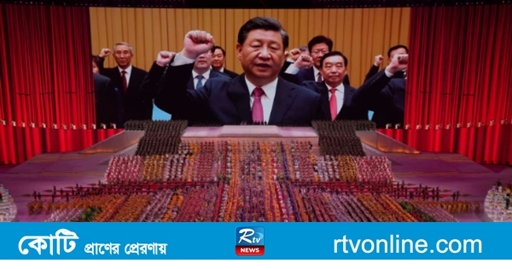Education is often viewed as the bedrock of critical thinking and intellectual freedom. Yet, in China, schools and universities serve a different purpose: indoctrination into the ideology of the Chinese Communist Party (CCP). From the earliest stages of education to the halls of higher learning, the Chinese education system has been understood to systematically mould students to align with state narratives, enabling compliance and discouraging dissent.
In China, the education system is weaponized by the CCP to inculcate unwavering loyalty to its ideology. Nowhere is this more evident than in the Party’s narratives about Tibet, Xinjiang, and Taiwan. Through manipulating curriculums and state-controlled pedagogy, Chinese schools and universities have transformed classrooms into arenas of political indoctrination, aiming to distort histories and suppress alternative perspectives.
This systematic indoctrination has not only entrenched authoritarian control but has also perpetuated harmful stereotypes and fuelled divisions that has hindered China’s relationship with the international community.
The CCP’s Narratives: A Manufactured Reality
From the earliest stages of education, Chinese students are taught that Tibet and Xinjiang are ‘inseparable parts’ of China and that Taiwan’s sovereignty is non-negotiable. School textbooks have known to whitewash histories of these regions, portraying them as historically Chinese territories and erasing the cultural and political autonomy they once held.
The CCP’s narrative on Tibet emphasizes its “peaceful liberation” in 1951, a euphemism for military invasion. Students are taught that Tibet continues to be backward, yet a feudal society rescued by Chinese intervention. The realities of Tibetan resistance, the destruction of monasteries, and the suppression of Tibetan Buddhism are unsurprisingly absent from these discourses. By presenting Tibet as a grateful beneficiary of Chinese governance, the CCP’s projection has attempted to reinforce its legitimacy while silencing the Tibetan struggle for self-determination.
Similarly, in the case of Xinjiang, elementary school textbooks have emphasized economic development and ethnic harmony, downplaying the harsh realities of mass detentions, cultural erosion, and systemic repression faced by the Uyghur population. These curriculums have projected narratives emphasising how Uyghurs have benefited benefit from Beijing’s policies, glossing over their lived experiences of surveillance and forced assimilation. Students are conditioned to see the CCP’s actions in Xinjiang as necessary measures to combat ‘extremism’, showcasing a nationalistic justification for human rights abuses.
The Limits of a Controlled Narrative
The CCP’s propaganda on Tibet, Xinjiang, and Taiwan, however also does more than distort history. It has for decades bred prejudice and suppressed critical inquiry, especially when it comes to the human rights abused the Party has conducted in these regions. By teaching students to view these regions through the lens of state ideology, the education system has entrenched harmful stereotypes and perpetuates systemic inequality.
For instance, Chinese students are been conditioned to see Tibetans and Uyghurs as ‘ungrateful’ or backward’ for resisting assimilation, reinforcing societal discrimination against these groups. Similarly, the vilification of Taiwan has bred undeniable hostility that has severely undermined the possibility of peaceful cross-strait dialogue.
However, perhaps the most concerning aspect of the CCP’s educational indoctrination is its suppression of dissent. Schools and universities have been equipped with surveillance systems to monitor student behaviour, and classmates are encouraged to report those who express ‘unpatriotic’ views, similar to practices that were exercised during the fateful ‘Cultural Revolution’. This has thus created an atmosphere of fear and conformity, where self-censorship has unfortunately become the norm.
The recent crackdown on students involved in labour movements and human rights advocacy illustrates the lengths to which the Party is prepared to go to silence dissent. These students, who dared to apply the Marxist principles they were taught to contemporary labour struggles, were met with arrests and expulsions, demonstrating the CCP’s hypocrisy in promoting ideology only when it serves its own interests.
The indoctrination of Chinese students has far-reaching consequences beyond China’s borders.
…
Moreover, the CCP’s education model serves as a blueprint for authoritarian regimes worldwide, demonstrating how control over education can be weaponized to sustain power and suppress dissent.
…



I have news for you.
Education has, traditionally, been more about control than anything else. It just seems the two most focussed groups are those who choose ‘acceptable learning’ which is wholly detrimental (and against) to critical thinking and intellectual freedom, and those who take the desire for the lack of learning to the extreme.
The best education is the one which wholly focuses on learning, without restriction. Very few places in the world have that.
Learning did not start with education and predates it by a lot. However, many people I’ve known who are educated cannot comprehend where things came from before they became information. The mindset that you cannot know anything unless you read it in a textbook. I too am educated but it felt most inadequate to me. We live in a somewhat educated world, and most of the educated world believes that the nature of many problems cannot be known and many problems cannot be solved.
That said, what the article states is absolutely worse. It is taking the traditional meaning of controlled education and using it to the extreme. Short term political gain, long term pain. If they are lucky enough to change ways in an adequate manner to avert disaster (and that is a very unlikely if), there will still be many economic and violent socially disruptive consequences which will directly be influenced by this choice. Such models of real forced control are not really sustainable—either the total (or even near total) control is a self-appreasing lie, or it is the prulude to the fall.